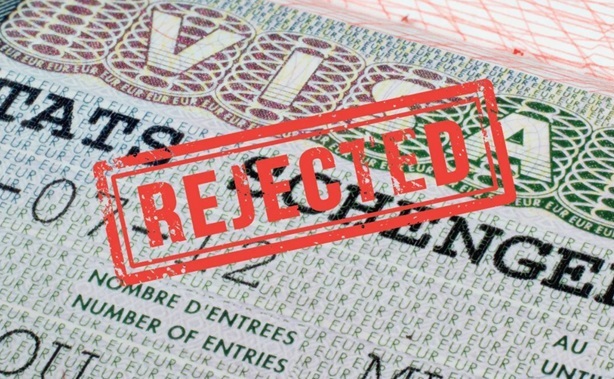Applying for a Schengen visa is a major step toward exploring Europe’s beautiful destinations. It allows you to travel freely across any Schengen country, from France to Germany and beyond. But sometimes, applicants face the disappointment of a Schengen visa refusal.
If this happens, don’t panic, a refusal doesn’t mean you can’t ever enter a Schengen country. You can appeal the decision and request a review. This guide explains, step by step, how to handle a Schengen visa refusal appeal and what you can do to improve your chances of success.

Step-by-Step Guide
1. Understand Why Your Schengen Visa Was Refused
Every Schengen country must provide clear reasons when refusing a Schengen visa. Common reasons include:
- Missing or incomplete documents,
- Doubts about your travel purpose,
- Lack of financial proof,
- Concerns about overstaying in a Schengen country.
Read your refusal letter carefully. It’s the foundation of your appeal because it helps you identify the specific issue the embassy or consulate found with your Schengen visa application.
2. Check the Appeal Rules of the Schengen Country
Each Schengen country follows its own rules for appealing a Schengen visa refusal. For example, the appeal process in France might differ from that in Italy or Spain.
Your refusal letter usually states:
- The deadline to file your appeal (often 15–30 days),
- The authority in that Schengen country that handles appeals, and
- Whether you need to pay a visa appeal fee.
Be sure to follow the instructions exactly. Missing even a small detail could cause your Schengen visa appeal to be rejected automatically.
3. Write a Strong Schengen Visa Appeal Letter
Your Schengen visa appeal letter gives you a chance to explain your case clearly and respectfully. Keep it professional, polite, and supported by facts. Include:
- Your personal details and application number,
- The reason for refusal stated by the Schengen country,
- New or updated documents that support your eligibility for a Schengen visa, and
- A short explanation of why the initial decision should be reconsidered.
This shows you are serious, organized, and respectful, qualities that increase your chances of getting your Schengen visa approved on appeal.
4. Provide Additional Supporting Documents
If your first Schengen visa application was refused due to missing or unclear evidence, now is your chance to strengthen it. Add new or improved supporting documents such as:
- Recent bank statements showing financial stability,
- Proof of employment or business ownership,
- Updated travel itinerary for the Schengen country, or
- An invitation letter from a host or organization within the Schengen Area.
Every extra document makes your Schengen visa appeal more convincing. The goal is to show that your visit to the Schengen country is genuine, temporary, and well-supported.
5. Submit Your Schengen Visa Appeal On Time
Timing is crucial in the Schengen visa appeal process. Most Schengen countries require that you submit your appeal within a strict timeframe, usually between 15 and 30 days after receiving your refusal notice.
Always use registered mail or courier service when submitting your Schengen visa appeal to prove that you sent it on time. Keep a copy of all your documents, including your passport, refusal letter, and new evidence, for future reference.
Failing to meet the deadline may automatically void your appeal, no matter how strong your case is.
6. Wait Patiently for the Decision
After submitting your Schengen visa appeal, the review process can take several weeks or even months, depending on the Schengen country involved. During this time, authorities will reassess your documents and decide whether to overturn the initial refusal.
You’ll usually be notified by email, post, or through the visa application center where you first applied.
If your Schengen visa appeal is successful, you’ll be issued the visa and allowed to enter the Schengen country. If it’s refused again, you can either reapply or seek further legal options, depending on that country’s laws.
Conclusion
Appealing a Schengen visa refusal can feel stressful, but it’s absolutely possible to turn the decision around with the right approach. Always remember:
- Every Schengen country has unique appeal procedures.
- The key to success is providing clear, complete, and truthful information.
- Persistence often pays off, many travelers succeed on their second attempt.
Whether your dream destination is France, Spain, or any other Schengen country, don’t let a refusal stop you. A well-prepared Schengen visa appeal could be your second chance to explore Europe freely and confidently. If you are in this situation and unsure how to proceed or what to do next, send us a message now and we will assist you with launching an appeal.
